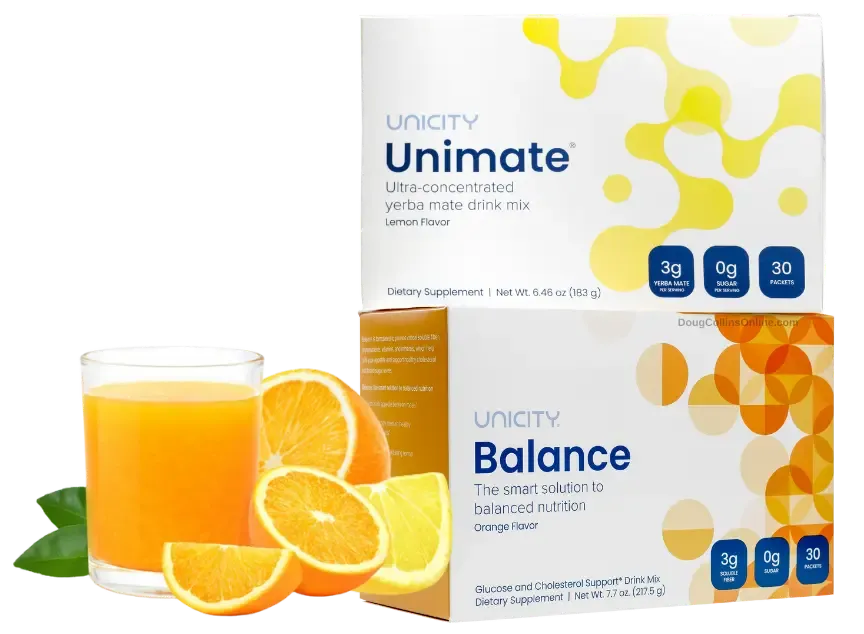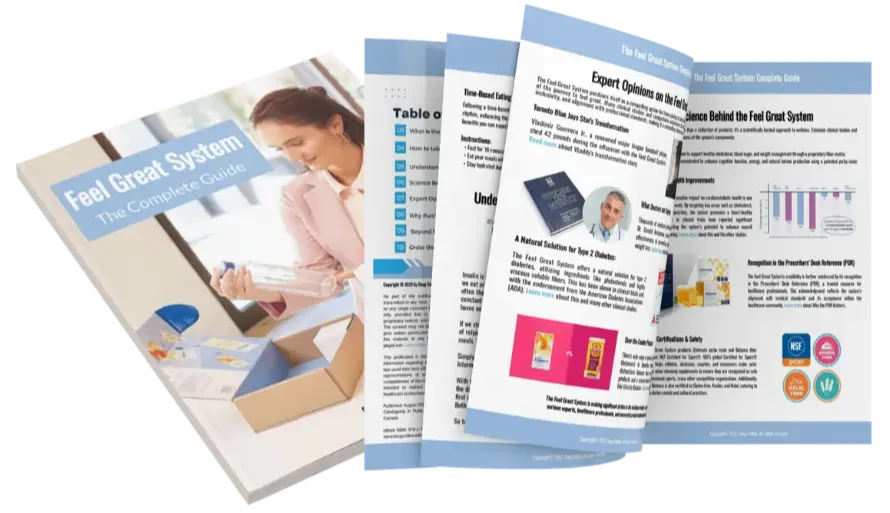The Truth About Sucralose in Unicity's Unimate: Health Concern or Media Hype?
Jun 24, 2023
The purpose of this article is to address the ongoing concern about an ingredient that is found in Unicity's Unimate yerba mate, specifically a sweetener called sucralose.
Updated November 13, 2024
Unicity International has reformulated Unimate Lemon by removing sucralose and erythritol and rebranding it as Unimate Natural Lemon. The new formula now includes Reb A (a Stevia extract). Unimate Natural Lemon has a slightly lighter color than the original and may bring out more of the natural Unimate flavor. Rest assured, you’ll still enjoy the same benefits and delicious lemon taste in every package.

There's been a media frenzy about a study by researchers at North Carolina State University suggesting that sucralose may lead to a leaky gut lining, increase the activity of genes related to inflammation and cancer, and also damage our DNA. In this article, we will examine this study in more detail and address this ingredient found in Unimate yerba mate.
Sucralose, most widely known by the brand name Splenda, is used in thousands of food products, including baked goods, diet beverages, chewing gum, gelatins, and frozen dairy desserts.
What the Study Says
The North Carolina State University study, published in the May 29, 2023, issue of the journal Toxicology and Environmental Health titled "Toxicological and pharmacokinetic properties of sucralose-6-acetate and its parent sucralose: in vitro screening assays," has drawn considerable media attention. As a result of the concerns about sucralose in the food supply, the media has been widely vilifying the use of sucralose.
Obviously, this leaves questions for those who consume products including Unicity's Unimate Yerba Mate. Why would Unicity use sucralose in Unimate? Great question and we will address that. The other question to ask if the media investigated the study findings before reporting it? Let's first review this study and then answer the question on it being an ingredient in Unimate.
The Study Findings
The researchers conducted a series of experiments using sucralose in vitro, meaning on cells in a lab setting in a petri dish. They exposed the cells to 4,000 micrograms of sucralose and sucralose-6-acetate. The smallest concentration of sucralose causing a twofold increase in yH2Ax, a DNA damage marker, was 994 micrograms per milliliter.
When we really look into the experiment and keep it into context, it raises many questions! Yes, I did the deep dive math and here's what it looks like - let’s take a look:
- First, the study was done in vitro, meaning in a petri dish – not an actual “human study”. The in vitro study investigated the toxicological properties of sucralose and a metabolite, sucralose-6-acetate. The in vitro findings showed that at 4,000 micrograms of sucralose it could increase the expression of genes associated with inflammation, oxidative stress, and even liver cancer. Before we jump to conclusions, it's important to consider the context of the study. Let's move on to the second point.
- Second, the experiment needed enough sucralose to create a toxicity level in the petri dish - 4,000 micrograms of sucralose. In comparison, and for context, another human study published in the journal Toxicology Environmental Chemistry in 2018, titled Plasma concentrations of sucralose in children and adults. This study had adults consume up to 250 milligrams of sucralose, which is the equivalent of four diet sodas. They found blood concentrations peaked at 200 to 400 ng/ml. And do you know how big a nanogram is? A thousand times smaller than a microgram. Remember, the petri dish experiment used 4,000 micrograms.
So if four diet drinks reaches 200 to 400 nanograms (ng) in the blood, in order to replicate the toxicity levels in the petri dish (4,000 micrograms) you would need to drink a minimum of 8,000 diet drinks. Obviously, evening attempting to drink that many sodas to replicate that experiment you'd die from the liquid intake long before sucralose did anything.
Yes, to replicate the petri dish experiment in humans, one would have to drink 8,000 diet sodas in a single day over an extended period of time to replicate the toxicity levels. Obviously, this is not realistic, given that a normal-sized can of soda the entire liquid need to consume would be 468 gallons (1,774 liters) per day!
Science will often use the petri dish and mice experiments to give them similar findings. For example here's another one, in 2016, a study published in the International Journal of Occupational and Environmental Health titled "Sucralose administered in feed, beginning prenatally through lifespan, induces hematopoietic neoplasias in male Swiss mice".
In this study, researchers evaluated the carcinogenic effect of sucralose in mice, using a sensitive experimental design. It was mentioned in the paper that the mice were given 'ad libitum' feeding, meaning they had constant access to food and could eat as much as they wanted. This food contained sucralose. However, the concentration levels of sucralose given to the mice were not equivalent to a human ingesting the sweetener on a daily basis through regulator food consumption. This study on mice was done just like the petri dish experiment - unrealistic over-the-top amounts of sucralose.
Sucralose in Unicity's Unimate: A Reasonable Perspective
It's important to maintain perspective when it comes to the sucralose content in Unimate yerba mate. Unicity uses a small amount of sucralose in Unimate. Each serving contains 8 milligrams of sucralose. Compared to the sucralose content in a diet soda (approximately 62.5 milligrams), a single serving of Unimate contains nearly eight times less sucralose.
You may be asking, "Even so, why use sucralose when there are other alternatives like stevia and monk fruit?"
Great question! As a science-based metabolic health supplement manufacturer, Unicity chooses one sweetener over another based on several factors, including taste, stability, and how the sweetener interacts with the main ingredients in the product. The goal is always to create a product that is palatable and pleasing for most consumers, but effective for its intended health purpose.
Two of the most important factors are regulatory approvals and cost. Since sucralose has been widely studied and is approved for use in food and beverage products in most countries worldwide, and specifically in all the 50+ countries where Unicity operates. Its worldwide wide approval and acceptance makes it a practical choice for a globally consumed product.
From a cost perspective, Unicity, as a large-scale manufacturer with plants worldwide, produces thousands of packets of Unimate daily. The sheer volume of ingredients and packaging needed, along with sourcing considerations makes sucralose a more cost-effective ingredient than stevia or monk fruit - which are typically more expensive.
The Sucralose Levels in Unimate Yerba Mate
To put it all into perspective, in order to reach the "toxic sucralose levels" from the petri dish study, one would need to consume 62,500 servings of Unimate per day. This amount is not only impossible, but the risks related to water toxicity in even drinking a few dozen packets might likely come into play long before any potential harm from sucralose could occur.
Now considering that we metabolize only around 15% of the sucralose we consume - and Unimate already contains eight times less sucralose than a diet soda - the total number of servings needed to match the petri dish experience would be 416,667 sachets per day, over an extended period of time.
Lets put this into perspective! 416,667 servings of Unimate ÷ 30 servings/box = 13,889 boxes (rounded up to the nearest box). If we consider each box as a month's supply (30 days), we can convert this number of boxes to years: 13,889 boxes ÷ 12 boxes/year = 1,157 years.
So, to reach the level of "sucralose toxicity" found the petri dish experiment one would have to drink 416,617 packets of Unimate PER DAY for an extended period of time. At the Unicity recommended amount for consumption that would take 1,157 years to drink that amount of Unimate!
Unicity uses a small amount of sucralose in Unimate, and there are sound reasons behind this decision. The average daily consumption of 1 or 2 packets of Unimate yerba mate is not only reasonable, but considering this harmful is unscientific and lacks common sense when truly looking into the details of the petri dish and mice studies. Unfortunately, for whatever reason, science can often have an agenda and the media tends to follow creating a frenzy of misinformation. I have linked other similar articles below you may find informative.
So, Unimate drinkers, you can enjoy your favorite drink without worries. And when someone raises a question about the sucralose content, you are now equipped with the facts to set the record straight! If you feel I missed or overlooked a serious consideration I would love to hear form you. If you found this article helpful and informative send me an email and let me know.
Related Articles:
Ready to Feel Better Than You Have in Years?
Try the Feel Great System Today

More energy. Better focus. Healthy blood sugar support. Sustainable weight loss.
Even if everything else you tried before has failed.
Order now with a 100% satisfaction guarantee.
Have questions? Contact Doug:
Click the Message/Chat Button
Send Email
Call/Text: 1-902-201-0245


